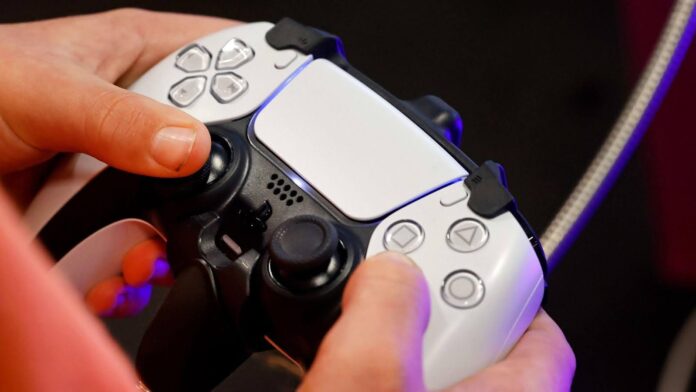Games are more than just a source of entertainment; they serve as powerful tools for enhancing cognitive abilities. Engaging with games requires players to analyze information, make quick decisions, and anticipate consequences, all of which contribute to stronger critical thinking. Beyond mere fun, strategic and complex games challenge the mind and encourage analytical skills. They also stimulate curiosity, encourage exploration of new strategies, and foster the ability to adapt to rapidly changing situations. Moreover, gaming often exposes individuals to diverse scenarios and perspectives, helping to build empathy and the ability to consider multiple outcomes simultaneously. In addition, games often introduce abstract concepts and problem-based learning experiences that can improve reasoning and enhance creativity.
Games as a catalyst for problem-solving skills
Many modern games, from puzzle adventures to strategy simulations, are designed to challenge players’ problem-solving capabilities. Players are often faced with complex scenarios that require careful analysis and innovative thinking to progress. By confronting these challenges regularly, individuals develop the ability to break down complicated issues into manageable components. Additionally, these experiences promote patience and persistence, as repeated attempts are often necessary to achieve success in game-based problems. Players also learn to think critically under pressure, balancing immediate needs with long-term goals. Regular exposure to these problem-solving situations encourages the development of alternative strategies and adaptive thinking, allowing players to explore multiple pathways to achieve success. They also cultivate creativity in approaching unfamiliar situations, enhancing flexibility in thought processes. This skill translates into real-life situations, enhancing logical reasoning, effective planning, and decision-making abilities. Moreover, the repeated exercise of evaluating options and outcomes helps in building a structured approach to solving diverse problems, which can benefit both academic and professional growth while fostering resilience in challenging situations and preparing individuals to face uncertainty with confidence.
Strategic thinking and planning in games
Strategy-based games demand foresight, planning, and the ability to adapt to changing circumstances. Players often have to weigh risks against rewards and predict opponents’ moves, which enhances both critical thinking and strategic planning. The process of developing and revising strategies strengthens mental flexibility, foresight, and decision-making speed. For example, engaging with a dynamic esports scene or reviewing a team’s performance through a cs ranking platform, such as egamersworld, allows enthusiasts to analyze strengths, weaknesses, and patterns in gameplay. Integrating gaming analytics into strategic understanding demonstrates how games cultivate analytical skills beyond the virtual world and encourages the application of tactical thinking in everyday scenarios, including business, project management, and educational settings. Over time, this constant engagement enhances long-term planning abilities and helps players recognize patterns that improve problem-solving efficiency in real-life contexts. Furthermore, exposure to competitive strategy environments promotes scenario analysis, contingency planning, and predictive modeling, all of which are vital skills in both professional and personal decision-making. Players also gain experience in prioritizing objectives and allocating resources efficiently, which further reinforces executive functioning skills applicable in real-world tasks.
Enhancing attention to detail and analytical observation
Games often require acute attention to detail and the ability to recognize subtle patterns or cues. Puzzle games, for instance, demand careful observation and critical evaluation to identify solutions. Players develop the skill to notice nuances that may otherwise be overlooked, which enhances analytical thinking. This focused attention also improves memory retention and the ability to track multiple variables simultaneously, strengthening both short-term and long-term cognitive skills. Engaging with games that require observation and deduction trains the mind to process complex information more efficiently and to identify correlations that can lead to deeper understanding. Players also cultivate systematic approaches to problem-solving and the ability to anticipate consequences of decisions. These abilities are transferable to academic, professional, and personal contexts, making players more adept at interpreting complex information, predicting outcomes, and drawing informed conclusions. Regular engagement with such games reinforces these cognitive skills over time, fostering long-term mental acuity, improving decision-making speed, and encouraging meticulous evaluation of options in various real-world scenarios, ultimately supporting sharper analytical reasoning, better problem anticipation, and enhanced intellectual discipline.
Collaborative and competitive environments
Many games encourage collaboration and competition, both of which foster critical thinking in unique ways. Multiplayer games require coordination, strategy sharing, and adapting to teammates’ and opponents’ tactics. Competitive environments, particularly in esports, compel players to think critically under pressure and analyze opponents’ behavior to gain an advantage. Engaging in team-based strategies strengthens interpersonal skills, communication, leadership, and conflict resolution, all while enhancing cognitive agility. The dynamics of working with diverse teams and facing unexpected challenges promotes flexibility, perspective-taking, and innovation in approach. These interactions also cultivate adaptability, as players must adjust strategies based on evolving situations and varying skill levels of others. This constant interplay between cooperation and competition sharpens analytical skills and teaches players how to approach challenges from multiple perspectives, reinforcing problem-solving techniques that can be applied beyond gaming contexts and encouraging innovative solutions in both personal and professional life. Additionally, collaborative gaming experiences improve emotional intelligence, negotiation skills, and decision-making under uncertainty, further enhancing practical analytical capabilities and preparing players for complex real-life interpersonal and professional challenges.
Conclusion
Games are powerful tools for developing critical thinking and analytical skills. From enhancing problem-solving abilities to improving strategic planning and attention to detail, they provide a stimulating environment for cognitive growth. Whether through individual puzzle-solving or analyzing competitive esports performance via resources like cs ranking, games bridge the gap between entertainment and education. By incorporating gaming into daily routines, players can harness these cognitive benefits, strengthening their ability to think critically, act analytically, and make informed decisions in real-world scenarios. Ultimately, games are more than leisure activities; they are practical instruments for developing mental resilience, strategic foresight, adaptive thinking, and cognitive versatility in an increasingly complex world, equipping players with skills that translate into multiple aspects of life. Beyond cognitive benefits, gaming also supports social, emotional, and teamwork skills, creating a holistic developmental experience that combines fun with meaningful skill-building. Additionally, games encourage lifelong learning, adaptability, and self-reflection, making them a comprehensive tool for intellectual and personal development across various areas of life.


